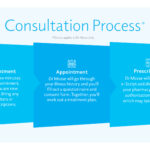Did you know that 120,000 people are diagnosed with diabetes each year? Diabetes is a chronic condition that affects how your body convert glucose (sugar) from food into energy. Diabetic patients are unable to convert sugar to energy efficiently resulting in high levels of sugar in blood, called hyperglycaemia. These high glucose levels can lead to long term health complications such as heart, kidney, eye, and foot damage.
Managing diabetes can be hard, but it is important to remember that you’re not alone. With the right treatment plan, you can manage your health and live a full, active life.
Below are some tips on how you can manage your diabetes and stay on top of your health.
1. Monitor Your Blood Sugar Levels: Regular blood sugar monitoring is important for managing type 1 or type 2 diabetes. This provides you with the insights needed to realise how your body is processing glucose and allows you to adapt your treatment plan accordingly. Speak with your doctor about how often you should check your blood sugar levels and the recommended target range based on your health conditions.

2. Eat a Balanced Diet: A diabetes diet is a healthy-eating plan that is naturally rich in nutrients and low in fat and calories. It includes plenty of fruits, vegetables, whole grains, lean proteins and healthy fats. It is also recommended that you visit an accredited practicing dietitian for personalised dietary advice. A dietitian can help you design a food plan that meets your individual dietary requirements.
3. Get Regular Exercise: If you have diabetes, regular exercise helps insulin to work better, reduce insulin resistance, and minimises blood glucose levels. Regular physical activity also helps you maintain a healthy weight, reduce your risk of heart disease and eases stress and anxiety. Aim to get at least 30 minutes of moderate exercise everyday.
4. Take Your Medication: Your healthcare provider helps by choosing the right medications for you, but you play the most important role. It is essential that you understand your prescription plan so that you can take your medicine in the right manner and at the right time, everyday. Diabetes is a progressive disease, therefore the longer you have diabetes, the more help you need from medications to keep you and your heart, eyes and kidneys healthy.
5. Stay Informed and Engaged: The more knowledge you have about how diabetes, diet, nutrition, medications and technology are connected, the better the selections you will make towards enhancing your health and wellbeing. Participate in a support group or online community, speak to your doctor regularly so that you get the support need to make better decisions about your condition.
Living with diabetes can be difficult, however, having empowerment in the treatment of diabetes allows you to make autonomous, informed decisions on how you can better manage your condition and fit diabetes into your lifestyle.






